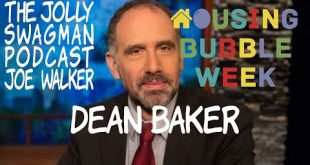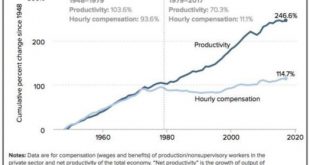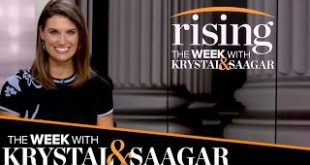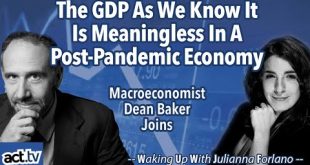I speak with Dean Baker, US economist and co-founder of the Center for Economic and Policy Research based in Washington, D.C. Dean is widely regarded as one of the first economists to have discovered the existence of the US housing bubble. I learn what indicators led him to make that call and what lessons his experience holds for future bubble-seers. Topics discussed - What problem is Dean working at the moment that excites him the most? [3:20] - The story of Dean selling his house in...
Read More »Epistemic humility — an intellectual virtue
from Lars Syll Being a true expert involves not only knowing stuff about the world but also knowing the limits of your knowledge and expertise. It requires, as psychologists say, both cognitive and metacognitive skills. The point is not that true experts should withhold their beliefs or that they should never speak with conviction. Some beliefs are better supported by the evidence than others, after all, and we should not hesitate to say so. The point is that true experts express...
Read More »A brief history of inequality in modern economics
from James Galbraith and Jaehee Choi and issue 92 of RWER In the years following World War II the division of labor between neoclassical micro- economics and pseudo-Keynesian macroeconomics was pioneered at MIT and disseminated worldwide from there. Macro held a narrow strip of economic territory: unemployment, inflation, interest rates and money supply, the business cycle, the rate of growth and their interrelations through the quantity theory, the Phillips Curve and Okun’s Law. The...
Read More »Wages and productivity
from David Ruccio and issue 9 of RWER Mainstream economists continue to insist that workers benefit from economic growth, because wages rise with productivity. Here’s the argument as explained by Donald J. Boudreaux and Liya Palagashvili: Firms cannot afford a misalignment of their workers’ pay and productivity increases – the employees will move to other firms eager to hire these now more productive workers. Higher economy-wide productivity, after all, means that workers add more to the...
Read More »The Week: Economists Align On Extending Unemployment Benefits, Call For Federal Jobs Programs
Krystal Ball looks back at notable interviews with economists amid the financial crisis. Professor of Economics, Stephanie Kelton, debunks common rebuttals from the GOP caucus on stimulus spending. Economist, Pavlina Tcherneva, explains why a federal jobs program is essential to economic recovery. Economist, Dean Baker, reveala how big pharma is cashing in on coronavirus vaccine research grants through patents. Stephanie Kelton DISMANTLES GOP Inflation, Deficit Myths...
Read More »Dean
Baker
Read More »Inequality challenge in pursued economies
from Richard Koo and issue 92 of RWER Income inequality has become one of the hottest and most controversial issues in economics not only in the developed world but also in China and elsewhere as well. Many are growing increasingly uncomfortable with the divide between the haves and the have-nots, especially after Thomas Piketty’s Capital in the 21st Century2sparked a fresh debate on the optimal distribution of wealth, an issue that had been largely overlooked by the economics...
Read More »Economist Dean Baker: How Big Pharma Is Getting FAT Off The Pandemic
Economist, Dean Baker, explains what Congress needs to do in order to have a meaningful Coronavirus relief package. About Rising: Rising is a weekday morning show with bipartisan hosts that breaks the mold of morning TV by taking viewers inside the halls of Washington power like never before. The show leans into the day's political cycle with cutting edge analysis from DC insiders who can predict what is going to happen. It also sets the day's political agenda by breaking exclusive news...
Read More »Economist Dean Baker: How Big Pharma Is Getting FAT Off The Pandemic
Economist, Dean Baker, explains what Congress needs to do in order to have a meaningful Coronavirus relief package. About Rising: Rising is a weekday morning show with bipartisan hosts that breaks the mold of morning TV by taking viewers inside the halls of Washington power like never before. The show leans into the day's political cycle with cutting edge analysis from DC insiders who can predict what is going to happen. It also sets the day's political agenda by breaking exclusive...
Read More »The GDP As We Know It Is Meaningless In A Post-Pandemic Economy. Macroeconomist Dean Baker Joins.
Follow on Twitch: https://www.twitch.tv/actdottv Julianna welcomes back recurring guest Dean Baker, macroeconomist and co-founder of the Center for Economic and Policy Research, to discuss how when we talk about a post-pandemic economy, it’s important to know what we’re measuring. Too often, the raw numbers don’t take into account the important ways we evaluate well-being. Dean talks about how to look at the health of the economy beyond what contributes to the GDP and debt. Dean Baker...
Read More » Real-World Economics Review
Real-World Economics Review








